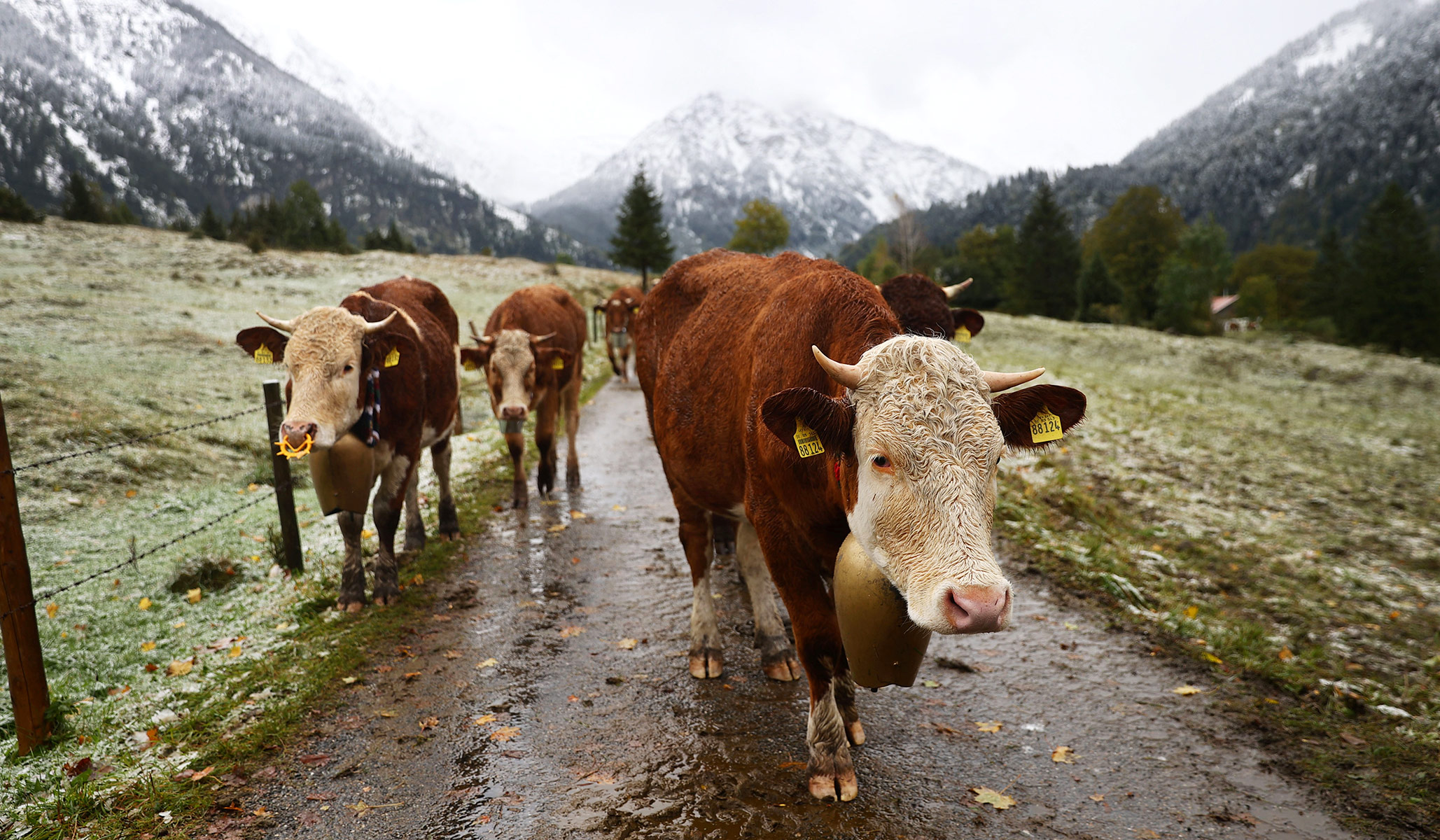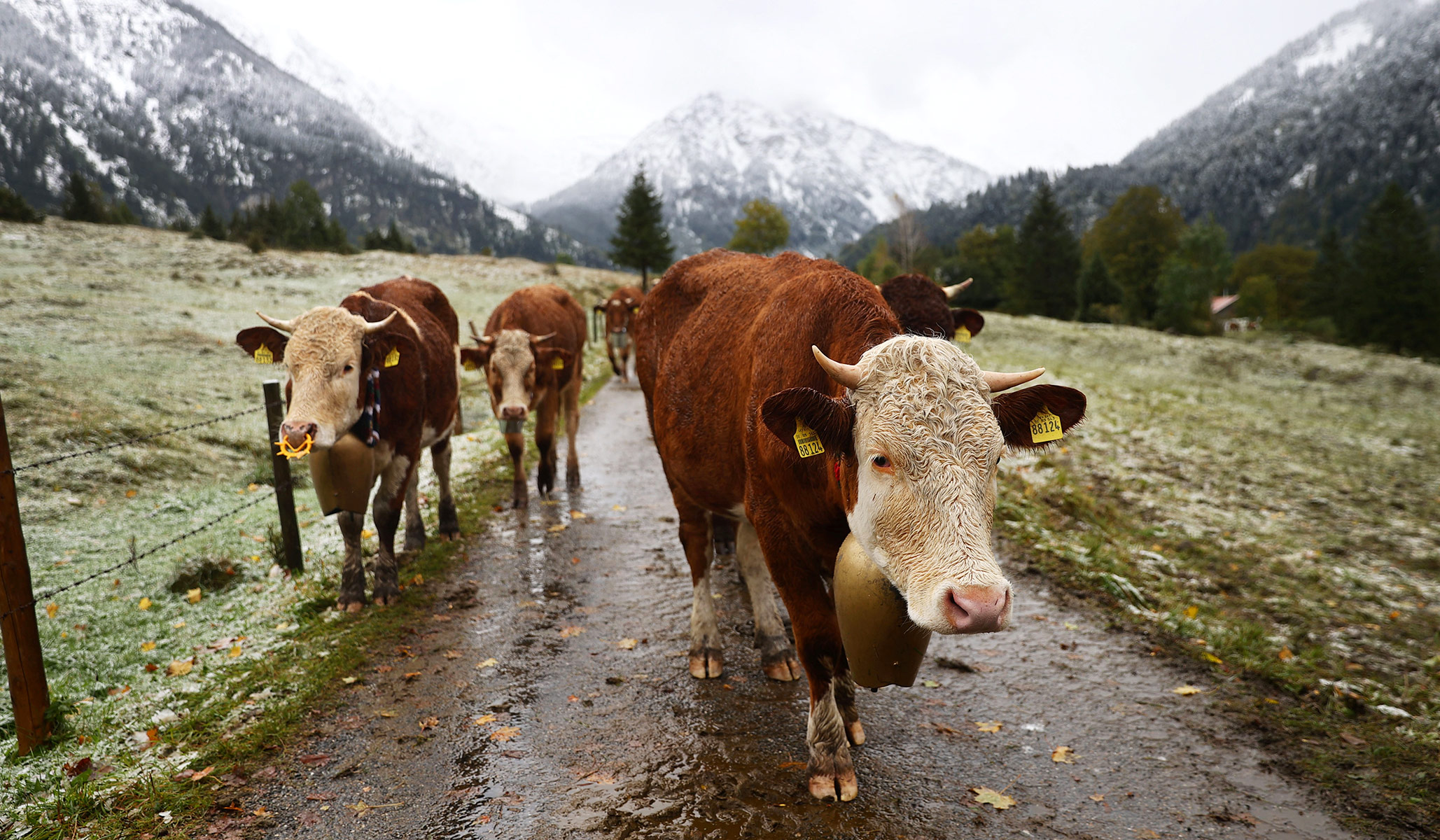
(Kai Pfaffenbach/Reuters)
The war against meat has become, so to speak, something of a staple for climate warriors, and one of the ways that it will be fought is by increasing meat’s price, perhaps indirectly, with the addition of new regulatory burdens, or directly, via some sort of carbon tax, or indeed, by a combination of the two.
That would be just fine, I’d guess, with Cem Özdemir, the (vegetarian) Green who is Germany’s new agriculture minister.
Food quality in Germany is too low, Özdemir said, and so are the prices, and everyone loses out because of it. “There should no longer be any junk prices,” he said. “They drive farms to ruin, prevent animal welfare, promote species extinction and burden the climate. I want to change that.” The price of food should, he said, reflect the “ecological truth.”
Ah yes, the “ecological truth”, which will, I suspect, be determined in an unaccountable process with very little in the way of objectivity about it.
DW:
Ultimately, [Özdemir] said, consumers also suffer from cheap food with too much fat, sugar and salt in it, pointing out that over 50% of German adults are overweight. “The former government tried for too long to get the industry to reduce these ingredients with voluntary commitments. That’s over now. With me, there will be binding reduction targets,” Özdemir said.
Command and control will, of course, be the essence of any green new deal.
And as for those misguided consumers, it seems that they just cannot be trusted to decide for themselves what to eat. The enlightened must step in to put them on the right path. It’s an old formula.
DW:
The new government’s declared aim, formulated in the freshly signed coalition contract, is to increase Germany’s proportion of “organically farmed” land from the current 10% to 30% by 2030 — though there are few details beyond that.
Meanwhile, reading this 2011 piece by Christie Wilcox in the Scientific American makes me wonder quite what the “ecological truth” behind organic farming will be determined to be. The article is by no means a hit job, far from it, but Wilcox does highlight some inconvenient truths, including these:
What makes organic farming different, then? It’s not the use of pesticides, it’s the origin of the pesticides used. Organic pesticides are those that are derived from natural sources and processed lightly if at all before use. This is different than the current pesticides used by conventional agriculture, which are generally synthetic. It has been assumed for years that pesticides that occur naturally (in certain plants, for example) are somehow better for us and the environment than those that have been created by man. As more research is done into their toxicity, however, this simply isn’t true, either. Many natural pesticides have been found to be potential — or serious — health risks. . . .
Even if the organic food you’re eating is from a farm which uses little to no pesticides at all, there is another problem: getting rid of pesticides doesn’t mean your food is free from harmful things. Between 1990 and 2001, over 10,000 people fell ill due to foods contaminated with pathogens like E. coli, and many have organic foods to blame. That’s because organic foods tend to have higher levels of potential pathogens. . . .
Some people believe that by not using manufactured chemicals or genetically modified organisms, organic farming produces more nutritious food. However, science simply cannot find any evidence that organic foods are in any way healthier than non-organic ones — and scientists have been comparing the two for over 50 years. . . .
Organic farming also takes up quite a bit more space:
Wilcox:
Organic farms produce around 80% that what the same size conventional farm produces. . . . Already[2011], we have cleared more than 35% of the Earth’s ice-free land surface for agriculture, an area 60 times larger than the combined area of all the world’s cities and suburbs. Since the last ice age, nothing has been more disruptive to the planet’s ecosystem and its inhabitants than agriculture. What will happen to what’s left of our planet’s wildlife habitats if we need to mow down another 20% or more of the world’s ice-free land to accommodate for organic methods?
It’s well worth reading the whole article. It’s also worth bearing in mind that those who push for a wider adoption of “organic” agriculture frequently do so for reasons that may be political, emotional, philosophical, religious, or cultural but rather too rarely involve #science, itself a discipline that may have a somewhat tricky relationship with “ecological truth.”
But back to DW (my emphasis added):
In July, a special government commission for the future of industrial agriculture — made up of both environmental groups and farmer groups — set out the same general targets that Özdemir did: reduce meat consumption, increase climate protection. Startlingly enough, it concluded that beef should cost five or six times more than it does now, or over €80 ($90) per kilogram (2.2 pounds), rather than the current €14. This price hike would be necessary to balance out the costs incurred through pollution and the loss of biodiversity, which the commission put at €90 billion a year. By the same calculation, dairy products should cost two to four times as much as they do now.
The “stakeholder” society (“environmental groups,” “farmers groups”) at work. Corporatism is what it is.
DW (emphasis added again):
The commission also recommended that an investment of €7-11 billion a year was necessary to finance the ecological transformation of the agriculture industry. Even so, the report found, there would be no way around reducing the total amount of livestock on German farms, which would inevitably mean less meat on the market, and higher prices…
If what’s going on in the European energy markets is not enough to convince you, this is yet another warning that Greenflation is on the way — and there will be nothing “transitory” (to use a no-longer-fashionable word) about it.
DW:
According to the Paritätische Gesamtverband, an umbrella group for Germany’s social welfare organizations, people with lower incomes would need to receive compensation payments for higher food prices.
“The fact is that the necessary ecological transition must go hand in hand with good social policy,” said the association’s chairman, Ulrich Schneider. For that reason, Schneider said it was “unfortunate” that Özdemir chose food prices as his main line of argument, rather than ecological issues and sustainable businesses. “People have to get the feeling they’re being included,” he said.
Oh, they will. Just not in a good way.

